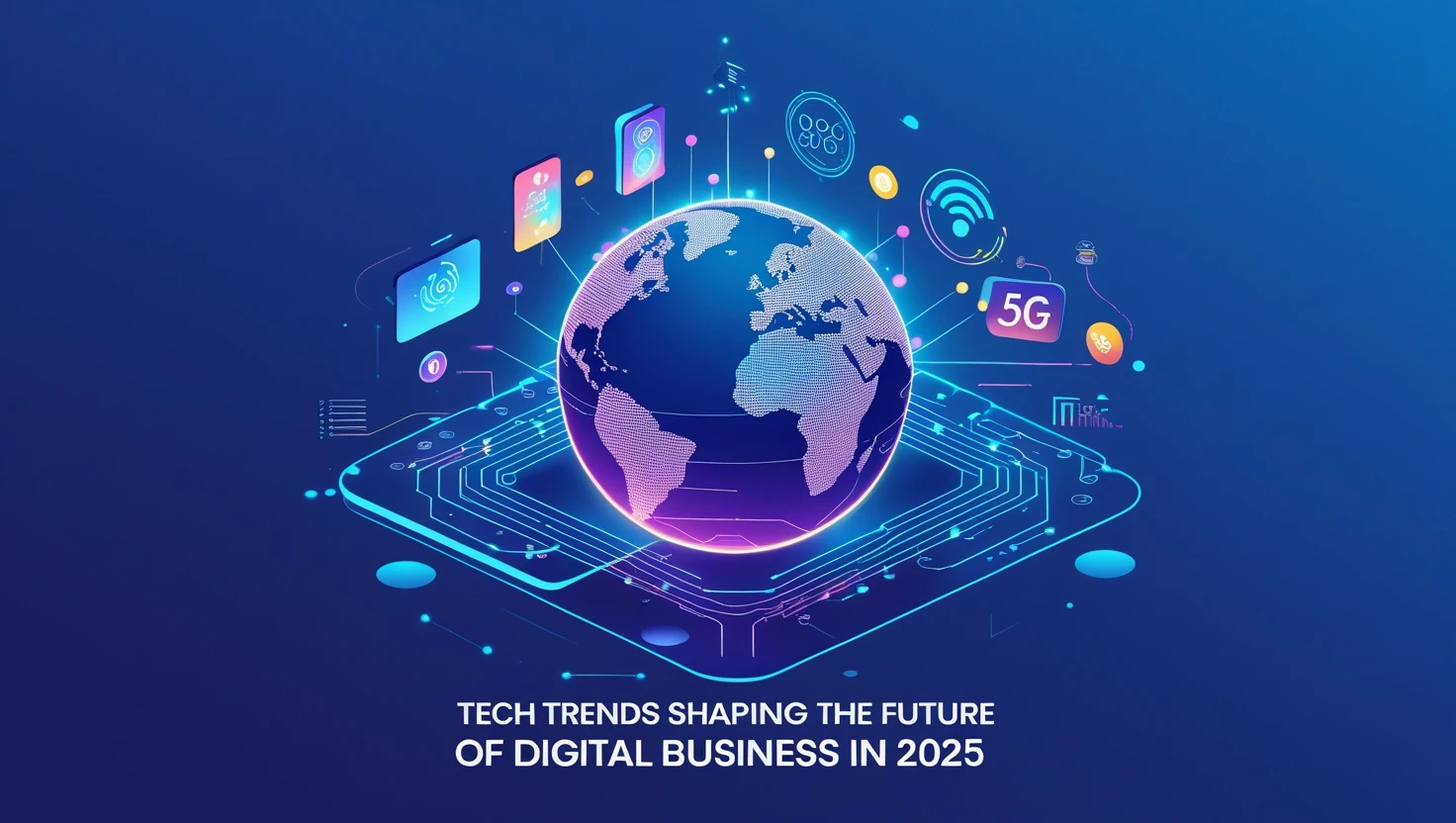Technology is ever-evolving, with new tendencies and trends appearing every year. The year 2025 is no exception and is about to bring change and new developments to how digital businesses operate. Staying ahead of these changes offers the advantage of determining how exactly they will impact businesses and what they should prepare for.
While trends are periodically changing, some necessities that aren’t replaceable such as reliable hosting providers and their alternatives, powering the digital businesses. Solutions like Virtual Private Server hosting offer a sturdy foundation for businesses to expand their operations while adapting to the new trends.
In this article, we will look at trends the tech sector offers digital businesses in 2025.
Trend 1: AI Autonomy and Security
Agentic AI refers to the software making its own decisions and acting based on them, promoting operational autonomy. This technology is based on functions that use memory, environmental recognition, planning, and following certain safety guidelines to achieve goals without human involvement.
For digital business, Agentic AI can drastically increase productivity in the area of customer support, breaking down large projects into smaller ones, and, of course, automating tasks and offloading the human workers. Agentic AI will be used in the future to make everyday decisions; therefore, getting ready to integrate this autonomous technology now can increase the adaptability of your digital business in the future.
AI is often used for automating simple tasks. However, even if we’re talking about smaller pieces of work we rely on AI to complete, security management is still paramount. The trend here is to manage the ethical, legal, and operational performance of AI tools. This is done by managing the policies that govern the use of AI and by explaining how AI development services function in practical applications. Focus on AI security is what promotes a responsible and more efficient use of artificial intelligence tools.
There’s another issue associated with AI that is commonly frustrating, and that is — disinformation. Not only the one that refers to inaccuracies in AI results but also the product of AI usage by malicious actors. For businesses, addressing disinformation security can result in more accurate authentication, preventing account turnover, more adaptation from AI models based on the context, and securing the brand’s reputation. Focusing on disinformation security can help you pick better vendors to work with, improve and secure your real-time communication, and ensure that the content you post, the deals you agree to, and the factual information are worth trusting.
Trend 2: Data Protection from Quantum-Based Threats
With the latest advances in quantum computing such as the development of new quantum neural networks, quantum algorithms, and chips with an increased amount of qubits. In this evolving landscape, quantum computing software will help businesses navigate and harness the power of these emerging technologies. Digital businesses are expected to reap the benefits of the power of quantum computing.
Quantum computers are able to process requests and complete calculations that ordinary computers either can’t or take too long to finish. Such computing power that will soon be integrated into operational capacities can pose a threat to data security. From that, the technology called Post-Quantum Cryptography (PQC) has appeared.
PQC is a set of encryption methods that protect the data from the threat of quantum computers infiltrating it. This technology is able to protect sensitive data from quantum computers, encrypt messages and databases, and at large, decrease the risk of cyber threats from quantum-powered third parties.
Such a technology is important for digital businesses to make room for since the sensitive data that businesses collect and store has to be secured for the sake of protection of operations and reputation.
Trend 3: Energy Efficiency
Increasing the sustainability of digital businesses is a trend that started a few years ago and is followed by corporations like Apple, Google, and Amazon.
In 2025, applying energy-efficient computing, including technology that reduces carbon footprint, will be one of the characteristics that determine customer trust. Advancements like quantum computing, energy-efficient GPUs, cloud services, etc., will be the main focus areas for reducing energy consumption. Businesses evaluating GPU options can compare cloud GPU pricing and energy efficiency metrics to make informed decisions.
Following the principles of energy efficiency is able to address legal, customer, and commercial demands that digital businesses are subjected to.
Trend 4: Spatial Computing
Immersive and realistic digital experiences are what many large tech companies would want to offer in 2025.
Different industries and sectors such as gaming, and e-commerce will feel the impact of advancements in Augmented Reality (AR), AI, and other digitally immersive tools. The demand for such a technology is made prominent with affordable devices like Apple Vision Pro, and Meta Quest 3 and new opportunities that those devices and technologies offer.
For businesses, spatial computing can be used for more efficient collaboration, more immersive training for potential employees, and assisted shopping experience.
Conclusion
It is crucial for digital businesses to embrace these trends in 2025 in order to stay competitive. No matter how rapidly these trends will evolve, understanding the potential directions for improvements is vital, since each innovation represents an opportunity for growth.
